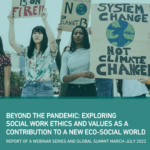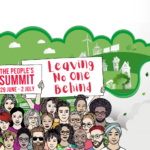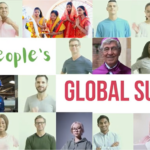Home › Forums › Live Open Mic Forum › Decolonising and Valuing Indigenous Knowledge › Reply To: Decolonising and Valuing Indigenous Knowledge
thank you to Rene and all the panel members for a diverse and inspiring panel dialogue. I really like the way it was planned and organized to bridge between all the experiences. A little of my context. Although I am clearly the product of a rural, western Canadian, living most of my adult life in urban Calgary, I have had the good fortune to have some other cultural and lived experiences. Some of this was as a member of IFsW executive for many years, most of them as treasurer. I had the honor of holding the Tata Institue Chair in social work in the mid-90s and helped one of our students experience an international practicum experience working with low-income farmers in Kerala. I had the opportunity write about history and paradigm shifts over several centuries in the Indian Journal of sW (199). I was worried then that the prof was largely trapped or frozen in the pre-20th century version of science (the biomedical model you addressed) and risked being several paradigm shifts behind by the dawn of the 21st century. Here we are 1/4 into the 21st calling for game-changing paradigm shifts in all sectors. I was struck by several key words woven into many of your individual and collective remarks: conception, holistic, biomedical, solidarity, plural pathways, space for debate. Finding a common conceptual framework/model for social work is a longtime interest. Holistic too has been a long time interest. I was introduced to systems thinking in grad studies in the 60s. Holistic became clearer when I connected with Buckminster Fuller’s work on Whole systems and Nature’s basic coordiante system, the tetrahedron, which is also the molecular structure of the carbon atom – the essence of life. Holism for me is now spelled with a “w”. sadly I think holism is still mostly rhetoric for many. The togetherness meaning of solidarity has intrigued me for quite awhile. When you connect it to reductionist science’s quest for a basic building block and the 20th century quantum science and the reemergence of indigenous sciences/knowledge that there is no building block to be found; it is all about relations, the meaning is right but the word is wrong. solid is fixed, rigid, compact, etc. Plurality has a hard time emerging with this concept. It in my opinion the word keeps us somewhat trapped in the very paradigm we are trying to transform. Plural pathways connect me to Fuller’s definition of unity. Unity is not oneness; it is plural, minimum two. Creating space, safe space is so important as the panel made clear throughout. Debate is important. I like what I have learned from David Bohm’s work on Undivided and Divided Wholeness worldviews and the importance of genuine space for dialogue, reflection, listening, and most important hearing and respecting others with genuiness. I would love to dialogue further and explore some of the conceptioning work I have tried might be able to map the messages and inspiration of the plural pathways panel into a conceptual model that can “house” and advance what you have presented on co-building a better world for everyone.






